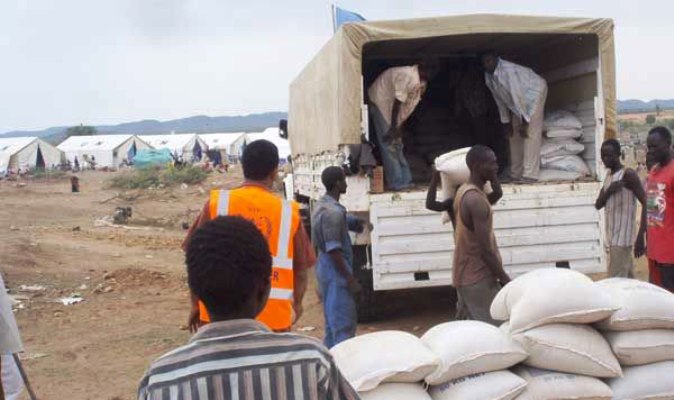Sudan, UN discuss aid delivery for rebel-held areas

November 23, 2018 (KHARTOUM) – The UN Resident and Humanitarian Coordinator for Sudan, Gwi-Yeop Son, on Thursday has discussed with the governor of South Kordofan State Ahmed Mufadal ways to deliver humanitarian assistance to rebel-controlled areas.
In a press statement to the official news agency SUNA, Mufadal said the meeting discussed the Sudan People’s Liberation Movement/North (SPLM-N) stance towards allowing access to humanitarian aid to areas under its control.
He demanded the UN agencies to put more pressure on the SPLM-N to allow the delivery of humanitarian aid to the needy population, renewing the government position in this regard.
Mufadal added the meeting also discussed the importance of coordination between the government and the UN to deliver the humanitarian aid to the needy, stressing the security situation in South Kordofan is calm and stable.
For her part, the UN official said she came to South Kordofan to learn about services rendered by aid and development groups in the state.
She pointed to the need to enhance cooperation with the government to promote humanitarian and development work and reduce the poverty rate in order to achieve peace in South Kordofan.
The Sudanese army has been fighting the SPLM-N rebels in the Blue Nile and South Kordofan, also known as the Two Areas since 2011.
Last September, Sudan agreed to an initiative from the UN to deliver humanitarian assistance to civilians in the rebel-controlled areas in the Blue Nile and South Kordofan states.
The details of the UN initiative are made public but they seem similar to a former plan prepared b a tripartite committee including UN, African Union and the Arab League providing that the humanitarian assistance will be delivered from Sudan after its control by the Sudanese authorities and its distribution will be monitored by UN, AU and Arab observers to ensure that the rebels will not get it.
The SPLM-N officials in the past told the mediation they insist on the external stations because they want to have a humanitarian corridor to ensure the transportation from the landlocked rebel-areas of ill or wounded fighters to outside the country for treatment.
The SPLM-N is now divided into two factions: one led by Abdel Aziz al-Hilu and the other led by Malik Agar. The rift emerged last year over the right of self-determination and other organisational issues.
Talks between the Sudanese government and the SPLM-N for a cessation of hostilities and humanitarian access are stalled since August 2016.
The SPLM-N demands to deliver 20% of the humanitarian assistance through a humanitarian corridor from Asosa, an Ethiopian border town.
But the government rejects the idea saying it is a breach of the state sovereignty and a manoeuvre from the rebels to bring arms and ammunition to their locked rebel-held areas in the Two Areas.
The SPLM-N, in November 2016 declined an American proposal to transport humanitarian medical assistance directly to the civilians in the rebel-held areas in the Blue Nile and South Kordofan.
Also, during the last round of talks from 1 to 3 February 2018, the Sudanese government and SPLM-N al-Hilu failed to reach a cessation of hostilities agreement. The rebel faction which controls the Nuba Mountains areas now wants all the humanitarian assistance to be delivered from outside Sudan.
(ST)
